Albert Schweitzer [1875-1965] was an Alsatian theologian, organist, philosopher, physician & medical missionary. He was born in Kaysersberg in the province of Alsace-Lorraine, at that time part of the German Empire. Schweitzer, a Lutheran, challenged both the secular view of Jesus as depicted by historical-critical methodology current at his time in certain academic circles, as well as the traditional Christian view. He depicted Jesus as one who literally believed the end of the world was coming in his own lifetime & believed himself to be a world savior. He received the 1952 Nobel Peace Prize for his philosophy of 'Reverence for Life,' expressed in many ways, but most famously in founding & sustaining the Albert Schweitzer Hospital in Lambaréné, now in Gabon, west central Africa (then French Equatorial Africa). As a music scholar & organist, he studied the music of German composer Johann Sebastian Bach & influenced the Organ reform movement (Orgelbewegung).
Schweitzer's passionate quest was to discover a universal ethical philosophy, anchored in a universal reality, & make it directly available to all of humanity.
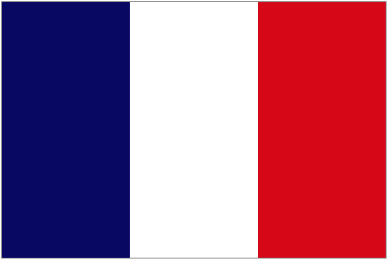 January 14, 1875 - Birth of Albert Schweitzer, Kayserberg, Alsace-Lorraine (France). Then part of the German Empire. Schweitzer family moves to Günsbach.
1893 Study of theology & philosophy, music lessons.
January 14, 1875 - Birth of Albert Schweitzer, Kayserberg, Alsace-Lorraine (France). Then part of the German Empire. Schweitzer family moves to Günsbach.
1893 Study of theology & philosophy, music lessons.
 1898 - First exam in theology, organ lessons with Charles Marie Widor in Paris (France).
1899 Doctor of Philosophy
1900 Doctor of Theology
1898 - First exam in theology, organ lessons with Charles Marie Widor in Paris (France).
1899 Doctor of Philosophy
1900 Doctor of Theology
 1902 - Professor of Theology in Strasbourg (France).
1902 - Professor of Theology in Strasbourg (France).
 1903 - Principal of the Theological Seminary St. Thomas in Strasbourg (France).
1905 He begins to study medicine
1912 Marriage to Helene Bresslau
1903 - Principal of the Theological Seminary St. Thomas in Strasbourg (France).
1905 He begins to study medicine
1912 Marriage to Helene Bresslau
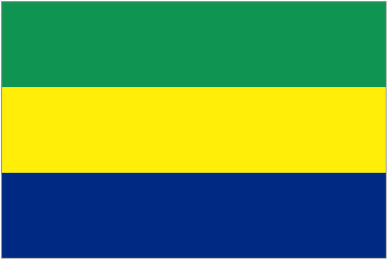 1913 - Doctorate of Medicine. First departure to Lambarene (Gabon).
1913 - Doctorate of Medicine. First departure to Lambarene (Gabon).
 Date? - Hospital, Lambaréné (Gabon). Then French Equatorial Africa.
Date? - Hospital, Lambaréné (Gabon). Then French Equatorial Africa.
 1914 - Internment in Lambaréné (Gabon).
1915 He finds the term "Reverence for life"
1914 - Internment in Lambaréné (Gabon).
1915 He finds the term "Reverence for life"
 1918 - Return to Alsace (France).
1918 - Return to Alsace (France).
 1924 - Second departure to Lambarene (Gabon).
1924 - Second departure to Lambarene (Gabon).
 1927 - Transfer of the hospital to today's location (Gabon).
1927 - Transfer of the hospital to today's location (Gabon).
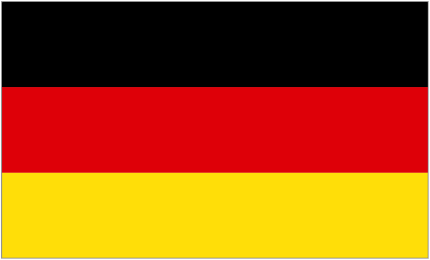 1928 - Goethe Prize from the city of Frankfurt am Main (Germany).
1928 - Goethe Prize from the city of Frankfurt am Main (Germany).
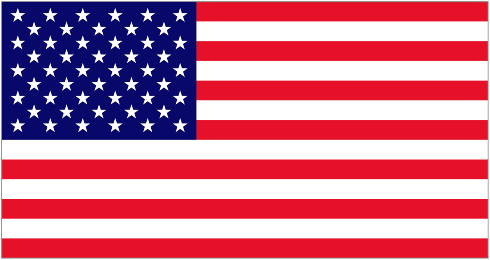 1949 - Visit to America.
1949 - Visit to America.
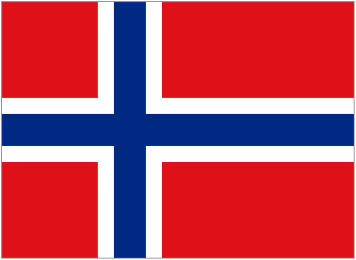 1952 - Nobel Peace Prize, Oslo (Norway).
1953 Nobel Peace Prize for 1952, Oslo (Norway).
1952 - Nobel Peace Prize, Oslo (Norway).
1953 Nobel Peace Prize for 1952, Oslo (Norway).


|  June 26, 1956 - Hôpital Albert Schweitzer (HAS), Deschapelles, Artibonite Valley (Haiti). "In 1947, Larry & Gwen Mellon were operating a large cattle ranch with their four children in Arizona (USA). Inspired by an article in Life Magazine about the hyumanitarian work in Africa of Dr. Albert Schweitzer [1875-1965], they started a correspondence with Dr. Schweitzer which endured until his death in 1969 [sic].
In 1949, Larry & Gwen met Dr. & Mrs. Schweitzer in Gunsbach, Alsace (France). On June 26, 1956, the doors to the hospital were opened. At the entrance to the hospital, the words were inscribed, Reverence Pour la Vie / Reverence for Life, the philosophical foundation for Schweitzer’s thoughts & actions. Larry died in 1989, & Gwen guided the hospital with wisdom & grace until her death in 2000." June 26, 1956 - Hôpital Albert Schweitzer (HAS), Deschapelles, Artibonite Valley (Haiti). "In 1947, Larry & Gwen Mellon were operating a large cattle ranch with their four children in Arizona (USA). Inspired by an article in Life Magazine about the hyumanitarian work in Africa of Dr. Albert Schweitzer [1875-1965], they started a correspondence with Dr. Schweitzer which endured until his death in 1969 [sic].
In 1949, Larry & Gwen met Dr. & Mrs. Schweitzer in Gunsbach, Alsace (France). On June 26, 1956, the doors to the hospital were opened. At the entrance to the hospital, the words were inscribed, Reverence Pour la Vie / Reverence for Life, the philosophical foundation for Schweitzer’s thoughts & actions. Larry died in 1989, & Gwen guided the hospital with wisdom & grace until her death in 2000."
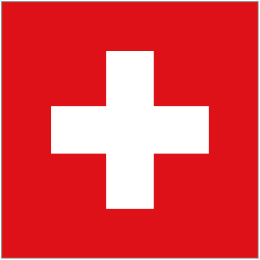 1957 - Helene Schweitzer-Bresslau dies in Zurich (Switzerland).
1958 Calls on Radio Oslo for abandonment of nuclear tests & production of atomic bombs.
1959 Last stay in Europe. 1957 - Helene Schweitzer-Bresslau dies in Zurich (Switzerland).
1958 Calls on Radio Oslo for abandonment of nuclear tests & production of atomic bombs.
1959 Last stay in Europe.
|
 September 4, 1965 - Death of Albert Schweitzer, Lambaréné (Gabon).
September 4, 1965 - Death of Albert Schweitzer, Lambaréné (Gabon).


| S
T
A
T
U
E
|  Date? - Statue of Albert Schweitzer, Buchenwaldplatz, Weimer (Germany). "The first statue in the world of German humanist Albert Schweitzer (1875–1965) was erected in the East German era on behalf of the Christian Democrats. Weimar was chosen (as well as for the Albert Schweitzer Memorial and Social Centre) by the Albert Schweitzer Committee since Albert Schweitzer’s personality & life had been characterised by humanity." Date? - Statue of Albert Schweitzer, Buchenwaldplatz, Weimer (Germany). "The first statue in the world of German humanist Albert Schweitzer (1875–1965) was erected in the East German era on behalf of the Christian Democrats. Weimar was chosen (as well as for the Albert Schweitzer Memorial and Social Centre) by the Albert Schweitzer Committee since Albert Schweitzer’s personality & life had been characterised by humanity."
|


| M
O
N
U
M
E
N
T
|  1969 - Monument d'Albert Schweitzer / Albert Schweitzer Monument, Le Kanzrain, Gunsbach, Alsace (France). "A cinq minutes à pied de la maison se trouve le Kanzrain, un rocher du haut duquel on jouit d'une magnifique vue sur la vallée de Munster. C'est là qu'a été érigé, en 1969 le monument que le disciple de Rodin, Fritz Behn a taillé dans la pierre rouge des Vosges. En 1958, Albert Schweitzer [1875-1965] écrit à ce sujet : "C'est la-haut que taillé dans la pierre, je voudrais pouvoir accueillir mes amis, c'est la qu'ils voudront bien avoir une pensée pour moi et écouter le murmure de la rivière qui a, si souvent, accompagné le vol de mes pensées. C'est la qu'est née ma philosophie culturelle, c'est la que j'ai compris Jésus en son temps. C'est la que je me sentais totalement chez moi." 1969 - Monument d'Albert Schweitzer / Albert Schweitzer Monument, Le Kanzrain, Gunsbach, Alsace (France). "A cinq minutes à pied de la maison se trouve le Kanzrain, un rocher du haut duquel on jouit d'une magnifique vue sur la vallée de Munster. C'est là qu'a été érigé, en 1969 le monument que le disciple de Rodin, Fritz Behn a taillé dans la pierre rouge des Vosges. En 1958, Albert Schweitzer [1875-1965] écrit à ce sujet : "C'est la-haut que taillé dans la pierre, je voudrais pouvoir accueillir mes amis, c'est la qu'ils voudront bien avoir une pensée pour moi et écouter le murmure de la rivière qui a, si souvent, accompagné le vol de mes pensées. C'est la qu'est née ma philosophie culturelle, c'est la que j'ai compris Jésus en son temps. C'est la que je me sentais totalement chez moi."  1952 1952
|



| T
R
A
I
L
|  Date? - Sentier Albert Schweitzer / Albert Schweitzer Footpath, Gunsbach, Alsace (France). "A footpath for walking and meditating about the thought of Albert Schweitzer [1875-1965] . It starts at the old presbytery, 3 rue du docteur Albert Schweitzer, and leads us across the village of Gunsback to the Albert Schweitzer house [museum], 8 route de Munster, passing by the rock of Kanzrain. It is lined with 16 panels [in German & French], which recall important moments in the life of the doctor. The whole route is approximately 920 m, the walking time takes about one hour." Date? - Sentier Albert Schweitzer / Albert Schweitzer Footpath, Gunsbach, Alsace (France). "A footpath for walking and meditating about the thought of Albert Schweitzer [1875-1965] . It starts at the old presbytery, 3 rue du docteur Albert Schweitzer, and leads us across the village of Gunsback to the Albert Schweitzer house [museum], 8 route de Munster, passing by the rock of Kanzrain. It is lined with 16 panels [in German & French], which recall important moments in the life of the doctor. The whole route is approximately 920 m, the walking time takes about one hour."  1952 1952
|

|  1981 - Musée Albert Schweitzer / Albert Schweitzer Museum, 126, rue du Général de Gaulle, Kaysersberg, Alsace (France). "Ce lieu présente l'œuvre hospitalière du docteur à Lambaréné (Gabon) de 1913 à nos jours. " Next door to Schweitzer's birthplace. Albert Schweitzer [1875-1965] received the Nobel Peace Prize in 1952. 1981 - Musée Albert Schweitzer / Albert Schweitzer Museum, 126, rue du Général de Gaulle, Kaysersberg, Alsace (France). "Ce lieu présente l'œuvre hospitalière du docteur à Lambaréné (Gabon) de 1913 à nos jours. " Next door to Schweitzer's birthplace. Albert Schweitzer [1875-1965] received the Nobel Peace Prize in 1952.  1952 1952
 1998 - 85th anniversary of the hospital in Lambaréné (Gabon). 1998 - 85th anniversary of the hospital in Lambaréné (Gabon).
|
January 14, 1875 - Birth of Albert Schweitzer, Kayserberg, Alsace-Lorraine (France). Then part of the German Empire. Schweitzer family moves to Günsbach.
1893 Study of theology & philosophy, music lessons.
1898 - First exam in theology, organ lessons with Charles Marie Widor in Paris (France).
1899 Doctor of Philosophy
1900 Doctor of Theology
1902 - Professor of Theology in Strasbourg (France).
1903 - Principal of the Theological Seminary St. Thomas in Strasbourg (France).
1905 He begins to study medicine
1912 Marriage to Helene Bresslau
1913 - Doctorate of Medicine. First departure to Lambarene (Gabon).
Date? - Hospital, Lambaréné (Gabon). Then French Equatorial Africa.
1914 - Internment in Lambaréné (Gabon).
1915 He finds the term "Reverence for life"
1918 - Return to Alsace (France).
1924 - Second departure to Lambarene (Gabon).
1927 - Transfer of the hospital to today's location (Gabon).
1928 - Goethe Prize from the city of Frankfurt am Main (Germany).
1949 - Visit to America.
1952 - Nobel Peace Prize, Oslo (Norway).
1953 Nobel Peace Prize for 1952, Oslo (Norway).

September 4, 1965 - Death of Albert Schweitzer, Lambaréné (Gabon).





